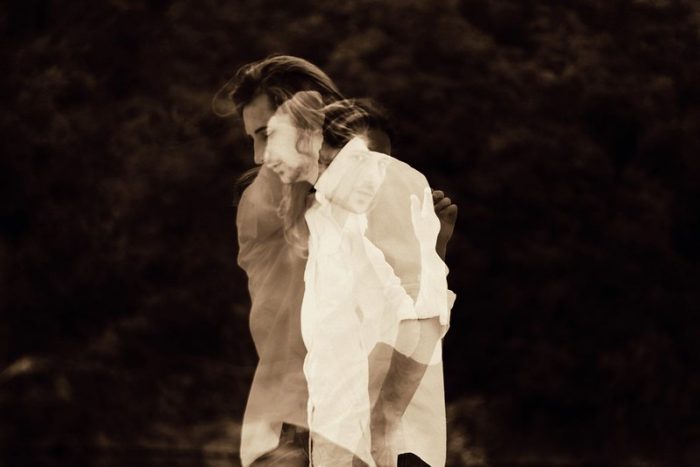I knew in my heart that being alone on Christmas did not have to be the death sentence that our Hallmark culture tries to make us feel like it can be.
I’ve never been big on tradition, so it was well within my ability to enjoy a day off from work being creative, writing and singing, eating sashimi, and watching George C. Scott in “A Christmas Carol.”
“Keep Christmas in your own way and let me keep it in mine!” These words from Ebenezer Scrooge really seemed to resonate with me more this year than any other.
In retrospect, I can say that I would have been quite a bit more successful in this social experiment had I been thoughtful enough to stay far from Facebook. When I experienced my first major break-up 20 years ago, there was no Facebook. Sure, you’d go grocery shopping and see an old couple—two lovely people gathering supplies for the coming week—and you’d catch some feelings. The difference was that in those instances, you’d experience a wistful moment and before long you’d be driving away and thinking of something else.
With Facebook, it is the equivalent of spending an entire day with loving couples parading through your living room, reminding you of what you didn’t—perhaps couldn’t—have.
My holiday timeline was filled with people kissing, opening presents, and living their best lives, dotted with the quotes and memes reminding us of how we are “right where we should be” in that very moment. I kept trying to remind myself of the latter.
However, it became obvious to me that I was doing something wrong in my intimate relationships, something that I needed to work on if I was ever to be one of those happy faces on the Christmas timelines of the future.
As a male in American society, I have always felt a certain expectation to “move on” from loss. I always just assumed one of my shortcomings or defects of character was my inability to leave the past in the past.
The problem with, what is erroneously referred to as “conventional wisdom”—the advice that we need to move on after a loss—is that it’s just not realistic. Whether we are talking about the death of someone we love, a divorce, or a separation, we can’t just compartmentalize chapters of our lives to go begin new ones. We carry the pain and the memories and the feelings around with us. The best we can hope for is to continue moving forward.
And yet, nobody teaches us how to do this.
I became a workaholic, working at my day job 60 hours a week. I am up at 6 a.m. on the weekends to pick up my girls to spend time with them. I wrote a book and signed a deal. I volunteer every Saturday night at the local jail. I play numerous gigs at wineries and restaurants. I write tons of articles.
I almost feel as though there is a part of me that doesn’t want to slow down long enough to feel anything.
Christmas day was uncomfortable for me because I had to quietly face my pain. But, it was bound to happen sooner or later.
That evening, while I drove the 20 miles to the only sushi place that was open, I listened to the Nora McInerny TED Talk episode “We don’t move on from grief. We move forward with it.” At the end, after she told the story of losing her young husband to stage-four brain cancer, she concluded by saying, “A grieving person is going to laugh again and smile again. They’re going to move forward. But that doesn’t mean that they’ve moved on.”
In that moment, I could not have heard more appropriate words. I have, indeed, constructed a dynamic life for myself after moving out. No one can possibly say that I haven’t done everything in my power to move forward. I am not sure, however, that I will ever move on.
~






Read 14 comments and reply